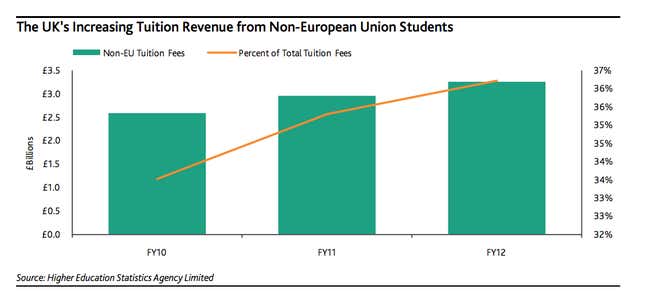The British higher education system is in the middle of a quiet revolution, tilting relatively quickly towards an American-style market-based approach favored by the current coalition government. The government has laid out plans to cut government funding for universities by 40% by 2014. But that money has to come from somewhere. And it will likely be students. For example, in October the cap on tuition fees at universities was raised to £9,000 (~$13,800), from £3,375 the prior year.
But such tuition caps don’t apply to students from outside the European Union, which is a large part of the reason the UK just unveiled a new strategic effort to attract students from overseas. Revenues from such students have been rising fast. At £3.2 billion, non-European Students accounted for more than one-third of all the course fee revenues collected in the fiscal year that ended in July 2012, according to research from Moody’s Investors Service. And that’s just course fees. There are a range of other potentially rich sources of cash from foreign students such as living expenses.

Cynics might point out that while Britain seems more than open to cash from foreign students, the country has been far less welcoming in other ways. For instance, changes in some visa requirements have caused a drop in enrollment of students from India and Pakistan recently. Schools in Canada and the US have apparently snatched many of them up.